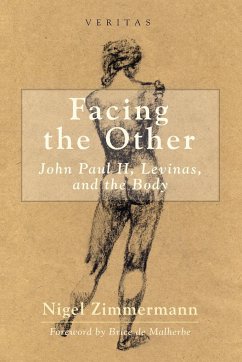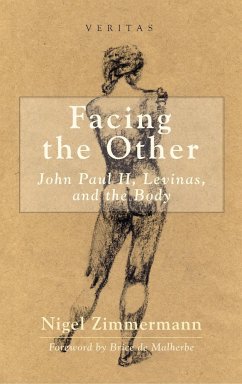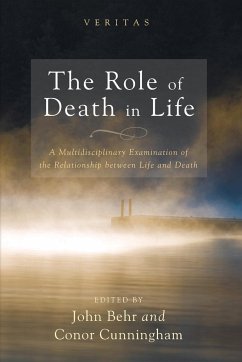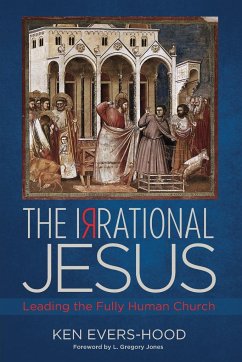
Facing the Other
Versandkostenfrei!
Versandfertig in 1-2 Wochen
35,99 €
inkl. MwSt.
Weitere Ausgaben:

PAYBACK Punkte
18 °P sammeln!
What is the significance of the body? What might phenomenology contribute to a theological account of the body? And what is gained by prolonging the overlooked dialogue between St. John Paul II and Emmanuel Levinas? Nigel Zimmermann answers these questions through the agreements and the tensions between two of the most important thinkers of the twentieth century. John Paul II, the Polish pope, philosopher, and theologian, and Emmanuel Levinas, the French-Jewish philosopher of Lithuanian heritage, were provocative thinkers who courageously faced and challenged the assumptions of their age. Both...
What is the significance of the body? What might phenomenology contribute to a theological account of the body? And what is gained by prolonging the overlooked dialogue between St. John Paul II and Emmanuel Levinas? Nigel Zimmermann answers these questions through the agreements and the tensions between two of the most important thinkers of the twentieth century. John Paul II, the Polish pope, philosopher, and theologian, and Emmanuel Levinas, the French-Jewish philosopher of Lithuanian heritage, were provocative thinkers who courageously faced and challenged the assumptions of their age. Both held the human person in high regard and did their thinking with constant reference to God and to theological language. Zimmermann does not shirk from the challenges of each thinker and does not hide their differences. However, he shows how they bequeath a legacy regarding the body that we would overlook at significant ethical peril. We are called, Zimmermann argues, to face the other. In this moment God refuses a banal marginalization and our call to responsibility for the other person is issued in their disarming vulnerability. In the body, philosophy, theology, and ethics converge to call us to glory, even in the paradox of lowly suffering.














